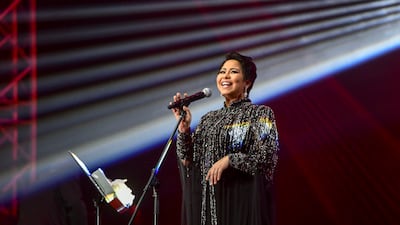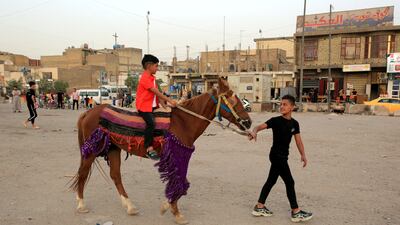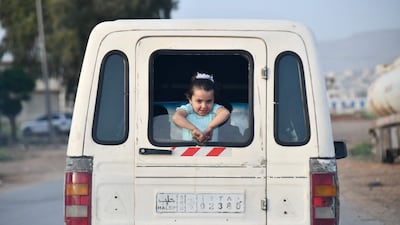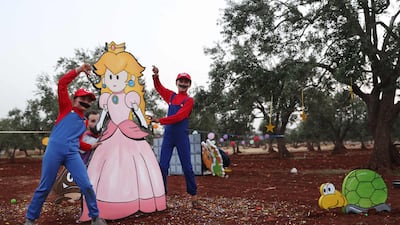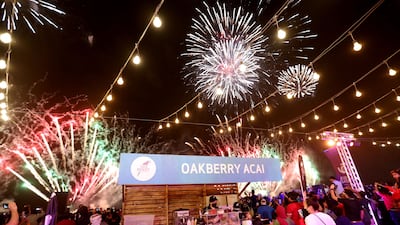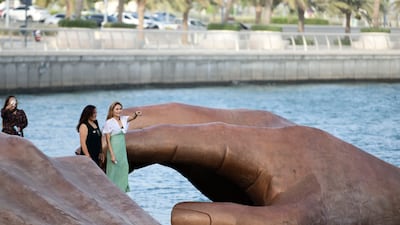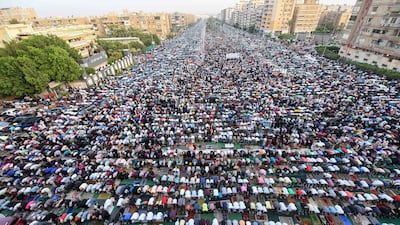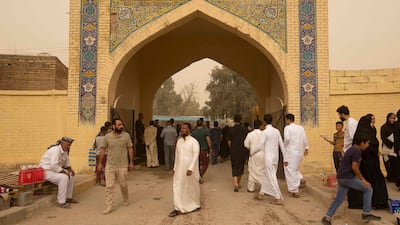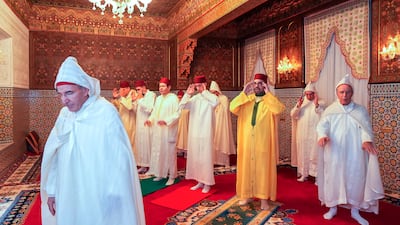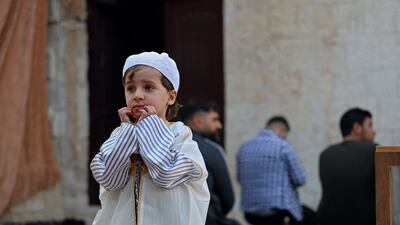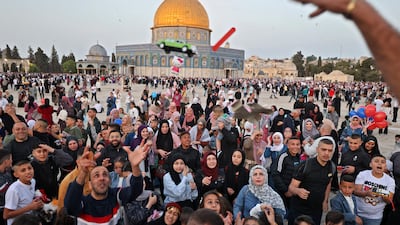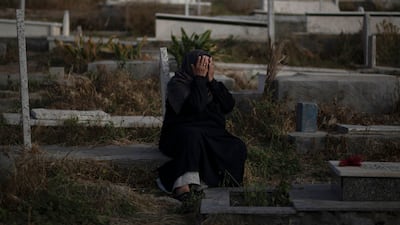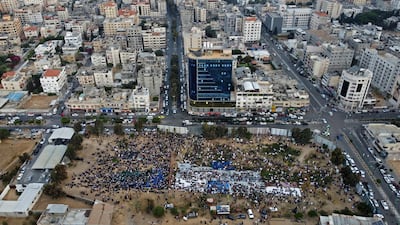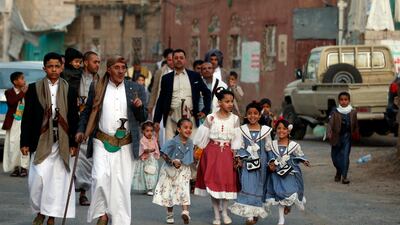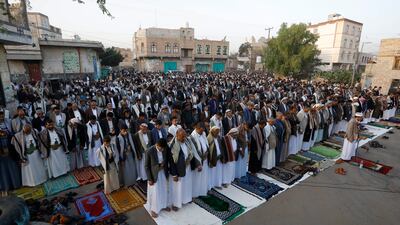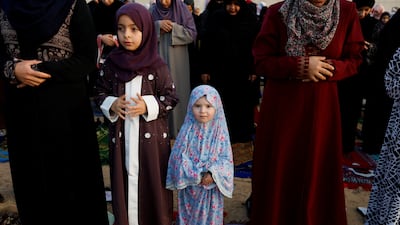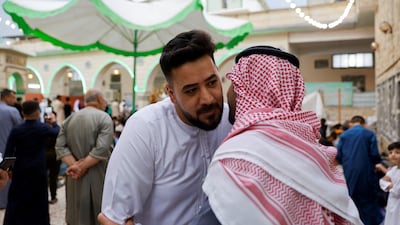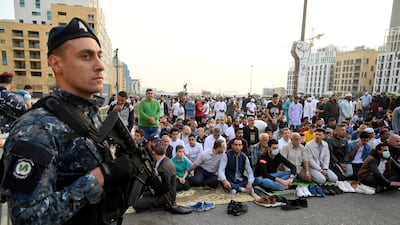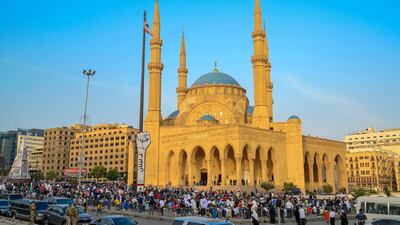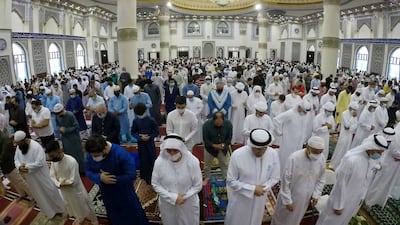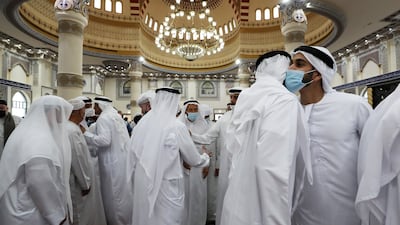Ramadan fasting ended on Monday as Muslims around the world revelled in Eid Al Fitr celebrations.
The festive ritual lasts for three days. Traditionally, families prepare heritage recipes and meet loved ones for early prayers and gatherings in parks.
Children and adults are also wear new clothes to observe Eid.
The celebrations will be welcome after two years of subdued festivities amid the coronavirus pandemic.
Life is back to normal in many countries after governments eased restrictions after vaccination campaigns to combat a new wave of infections caused by virus variants.
In Saudi Arabia, Eid was marked with fireworks across the country.
After Isha, or the final prayer of the day, people headed out to buy sweets and Eid gifts, and shop for the celebrations.
Malls and public places played traditional Eid music.
“The excitement and feeling is palpable wherever you go, from the streets to malls or along the Corniche. Everyone is out playing Eid songs and it is the most joyful festival for kids who are excited for their Eid gifts and adults who get to dress up and meet their families and friends in a grand celebration over the next three days” said Lamar Alsayeed, a Saudi living in Jeddah.
Across the Middle East, Eid is often welcomed with sweet and stuffed pastries called kahk and mahmoul. In South-East Asia, it is marked with steamed rice served with rich meat dishes and desserts.

In the Lebanese capital Beirut, hundreds of people performed Eid Al Fitr prayers outside Al Amin Mosque. They defied the financial meltdown and the economic catastrophe endured by their country, which left many citizens unable to make ends meet.
But this year’s Eid comes in the shadow of a surge in global food prices, which has heavily affected countries relying on imports of wheat and other culinary essentials such as sunflower oil and dairy products following the war in Ukraine.
The higher food prices have contributed to a broader increase in inflation, which adds to economic hardship for poor populations and the needy.
Hobbled by budget pressures, most families in the Middle East are used to cooking at home, with favourites including Eid cookies. Proud home cooks often share social media photos of their mouth-watering, freshly backed orange biscuits and sugar-dusted cookies.
Many people are determined not to let the high prices dampen the Eid spirit.
“Come and try the best kahk you can ever have. It’s more delicious than the pricey ones in bakeries and supermarkets,” Somia, an Egyptian woman, said on Instagram of her mother’s kahk recipe.
Palestinian women in Gaza and the occupied West Bank also compete to display their traditional date and nut-filled biscuits to mark Eid.
In Iraq, security concerns come with celebrations. The authorities have closed some vibrant streets for vehicles, including the capital's famed Al Mutanabi street on the banks of the River Tigris.
A symbol of Iraq’s cultural and intellectual life, the street with its book and souvenir shops and iconic balconies has undergone extensive redevelopment, while maintaining its identity.

In Indonesia, the world’s most populous Muslim country, tens of thousands attended prayers on Monday morning at the largest mosque in South-East Asia.
The Istiqlal Grand Mosque in Indonesia’s capital Jakarta was shut when Islam’s holiest period coincided with the start of the coronavirus pandemic in 2020, and was closed to communal prayers last year.
“Words can’t describe how happy I am today. After two years, we were separated by the pandemic. Today, we can do Eid prayer together again,” said Epi Tanjung, a resident in Jakarta, told AP.
In Afghanistan, people are celebrating the first Eid since the Taliban takeover, when it ousted a US-backed government in August amid grim security and economic conditions.
Frequent explosions marred the period leading to Eid. These included fatal bombings, most claimed by an ISIS affiliate known as ISIS-K. These attacked ethnic Hazaras, who are mostly Shiites, leaving many of them debating whether it was safe to attend Eid prayers at mosques.
“We want to show our resistance, that they cannot push us away,” said community leader Bakr Saeed before Eid. “We will go forward.”
AP contributed to this story from Indonesia and Afghanistan.





